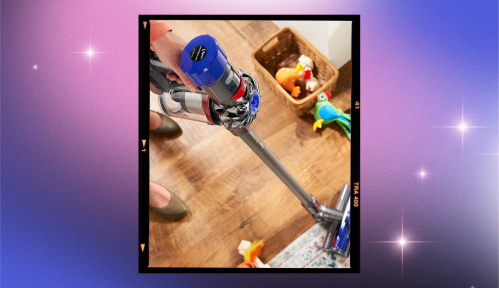Our editors independently select these products. Making a purchase through our links may earn Well+Good a commission
Summer is almost here, which means walking around with your entire body coated in sweat will happen as frequently as influencers posting photos on top of swan floats. And with all that sweat inevitably comes body acne. There isn’t a single root cause of acne, and it often (and trust us it will) pops up whenever it wants, even if you’ve never had acne before.
Experts in This Article
board-certified OB/GYN and chief medical director at Bonafide Health
Amanda Doyle, MD, FAAD, is a board-certified dermatologist.
board-certified dermatologist and founder of Curology
Marla Diakow, MD, a dermatologist at Schweiger Dermatology Group in Garden City, New York.
Just like with your face, a combination of oil and grime on top of your skin can cause breakouts pretty much anywhere on your body—from your chest to your arms and legs to your butt. “Facial and body acne share several similarities, and can both be driven by overactive oil glands, delayed sloughing of dead skin cells, and colonization with P acnes bacteria,” says Marla Diakow, MD, a dermatologist at Schweiger Dermatology Group in Garden City, New York. But, she says, there’s one major difference. “Acne-like bumps on the body are more often from folliculitis, which is triggered by inflammation of the hair follicles.”
As anyone who’s ever dealt with acne on their face probably knows, there’s rarely just one thing causing it—chances are, it’s a combination of a few different factors coming together for a perfect storm. First, let’s break it down at a biological level. Part of the reason acne develops, in general, is because of excess oil secreted by our sebaceous glands, and there happen to be more of those glands on our chests and backs, which is why breakouts in those areas tend to be so common. “They love the oily environment, and our immune system works hard to fight against them, which causes inflammation,” explains dermatologist David Lortscher, MD, founder of Curology. He also notes that hormones and genetics can also play a role here, so even if you do everything right externally (more on that below), you may still wind up with some pesky pimples that dot your bod every once in a while.
What causes acne
And what’s more, outside factors like laundry detergent, fabrics, how much you exercise, and even your shower habits can affect what happens to your body. If you’re unsure about the root of your acne, a survey conducted by eMediHealth found that common causes of acne are hormones, stress, environmental stressors, your diet (processed foods, dairy, and sugar are major culprits), and even poor hygiene.
Less obvious causes of acne are wearing tight clothing, especially if you’re sweating and your skin can’t breathe, and excess oil in the skin, also known as sebum, which is secreted into your pores. Gross? Slightly but the reality for so many. Since rosé and body acne season is afoot, we had the pros break down how to handle breakouts from head to toe. Read on for their complete guide.
Butt and legs
What causes it? Butt acne—or as I like to call it when I’m cursing my own in the mirror, ass-ne—usually falls into the “folliculitis” category, which means that it’s a low-grade infection in the pores caused by bacterial organisms (sexy!). “Folliculitis may begin as irritation of the hair follicle openings, usually from sweating and clothes that rub for those who are cyclists or those taking spin classes,” says Dr. Lortscher.
How can you avoid it? To keep these irritations at bay, avoid prolonged sitting (especially when you’re sweating), opt for breathable fabrics where possible, and always try to shower immediately after your workout (or at the very least strip off your sweaty clothing). One thing to look out for, especially on your butt: If something you think is a pimple turns into a deep, painful sore, it may be something more serious, so you’ll want to check in with your doctor, STAT.
What can you do to treat it? Try a benzoyl peroxide wash—like the Mario Badescu Body Breakout Kit ($22) on your bum, and see how things clear up.
Chest
What causes it? Boob zits happen, and there are a few reasons why. In addition to the usual sweat situation, the sun could also be to blame in the summer, because it dries out your skin and causes your oil glands to over-produce, which can lead to pimples. Your hair products could also be causing a reaction, especially if you’re leaving excess shampoo and conditioner on your skin in the shower. Hormonal fluctuations could also be behind pimples on your chest—and if you’re seeing pimples alongside irregular periods or sudden excess body hair, according to dermatologist Amanda Doyle, MD, FAAD, they’re likely to blame.
This Parisian Skincare Brand Is Launching in the United States for the First Time—Here’s What a Derm Wants You to Know

We’re Calling It: Cleansing Balms Are the Face Wash of the Future—Here Are 3 to Add to Your Cart

This Is the One Product That Scarlett Johansson Always Keeps in Her Purse and on Her Bedside Table

How can you avoid it? Avoid having the straps of your backpack or messenger bag rubbing across your chest, and strip off those sweaty sports bras immediately after you step off the spin bike. If the placement of your acne is corresponding to where your hair hits your chest, consider swapping out your hair products and seeing if it makes a difference. And finally, be mindful of what you’re washing your skin with—certain soaps and wipes with ingredients that aren’t working with your skin could be causing acne instead of helping to prevent it the way you’d expect.
How can you treat it? Extend your usual facial products down to your chest. To be more specific, use a non-drying toner, like Thayer’s Witch Hazel ($11), glycolic peel pads, like Malin + Goetz Resurfacing Pads ($52), and spot treatments like Kate Somerville EradiKate ($26) where needed. If your acne is of the hormonal variety, Dr. Doyle recommends devising a plan with your derm.
Vagina
What causes it? Of all of the places you can break out (which is basically… everywhere), I’m going to go ahead and confirm that the vagina is the undisputed worst. “Vaginal acne is usually related to waxing or ingrown hairs from shaving,” says Dr. Doyle, so again, you’re likely dealing with a form of folliculitis. Laser hair removal is a game-changer for this area as it removes the hair follicle, significantly reducing acne from forming. If you are going to keep the hair in this area, clipping hairs instead of shaving and warm compresses when a lesion occurs can help.
How can you avoid it? “In sensitive areas, like the bikini line, avoid harsh scrubs or exfoliants,” says Dr. Diakow. And laser hair removal can be a better alternative for those prone to breakouts than other hair removal procedures. If you’re looking to keep your Big Bush Energy going strong, Dr. Doyle suggests clipping hairs instead of shaving and using warm compresses whenever a zit sprouts up.
How can you treat it? “A chemical exfoliant using glycolic acid or salicylic acid is best,” says Dr. Diakow.
Back
What causes it? To put it bluntly: A lot of things. In addition to the dirt/grime/grease we’ve already talked about, zits can also pop up on your back because of your hair products. Certain ingredients in your shampoo and conditioner, particularly sulfates, may be to blame for the “ring of fire” of clogged pores around your neck and back. Because they can be drying to the skin, they can cause oil glands to overproduce.
How can you avoid it? “To help prevent ‘bacne,’ minimize the contributing factors—avoiding comedogenic soaps and washes and moisturizers, rinsing off right after sweating, and consuming less dairy may help quite a bit,” says Dr. Lorstscher. “It’s all about trying to identify the trigger for the body acne, and addressing that.” One product line we love? SEEN shampoo and conditioner, which are specially formulated to help you avoid breakouts on your body. Regardless of which products your using, the oil from your hair and scalp can also trickle down onto your back in the shower, so be sure to give it a good wash and rinse after your hair routine is complete.
How can you treat it? If you’ve kept your skin hydrated and follow a flawless shower routine but still wind up with zits on your back, try a spot treatment. Natural remedies like tea tree oil and witch hazel can work wonders, as can OTC options like Mario Badescu Drying Lotion ($14). The skin on your back happens to be thicker than the skin on your face (same goes for your chest), so Dr. Doyle recommends pairing topicals with an Eterno LED Device, which uses red light to help with product penetration.
Coping with acne as an adult can be hard—trust us, we know—and can impact you emotionally and have you feeling less confident, but try your hardest to not let it stop you from showing up as your badass self. Yes, acne is frustrating, but we’re all bound to experience it at some point in our life, and fortunately for you, you have a toolkit on how to manage and prevent it in the future.
Speaking of acne, here’s your guide to dealing with hormonal breakouts. Plus, the best shower products you can buy at Ulta for under $15.
Sign Up for Our Daily Newsletter
Get all the latest in wellness, trends, food, fitness, beauty, and more delivered right to your inbox.
Got it, you've been added to our email list.








